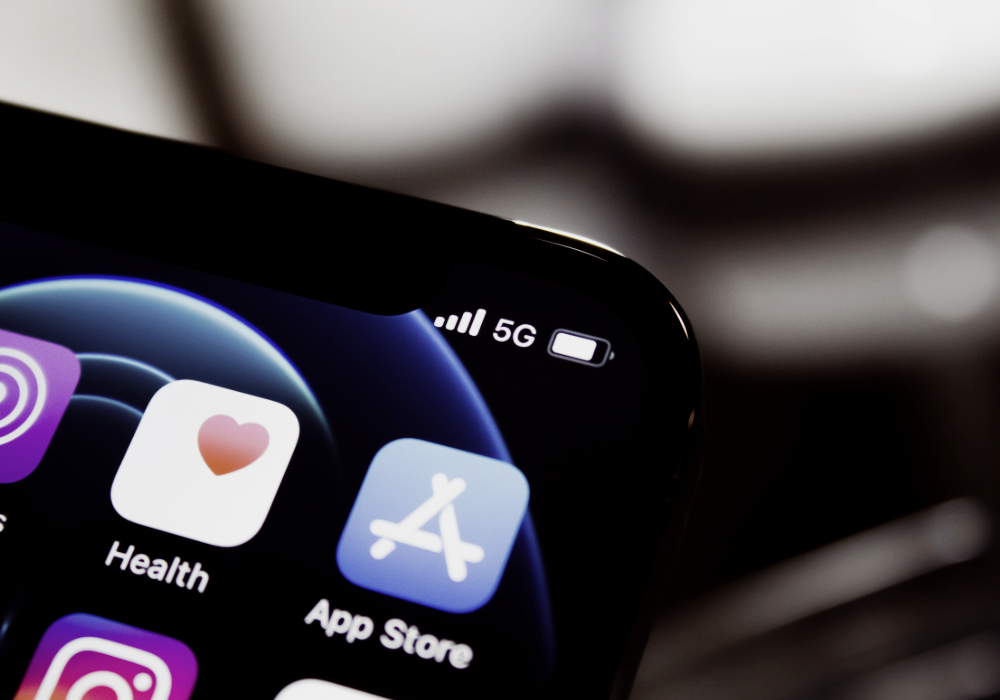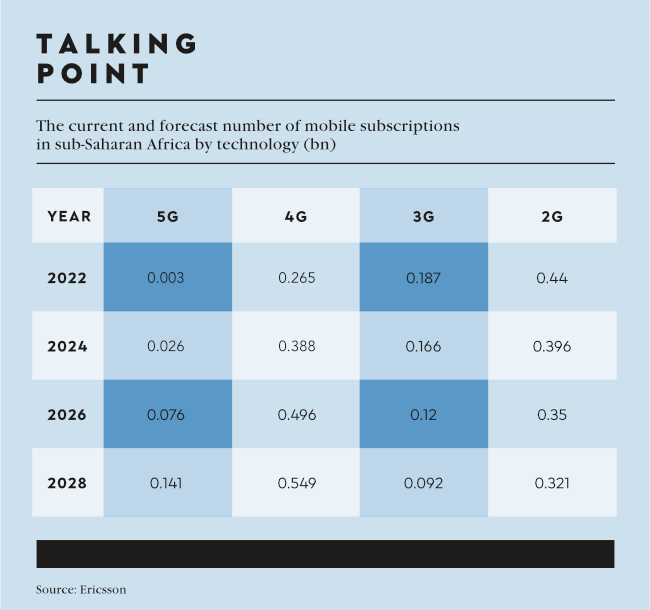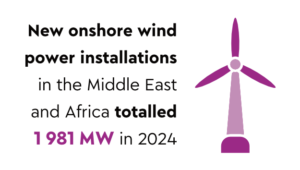The ocean off the South African coast just became a lot safer for fishermen and other marine users. This follows the deployment of Africa’s first 5G ultra-range maritime offshore coverage in September. A collaboration between South African telco MTN and Chinese ICT company ZTE, the project was unrolled off the town of Mossel Bay, in the Western Cape province.
In what the companies in a statement called ‘a new era in maritime communication’, the project delivers ‘more than 210 Mb/s throughput at 22 km from the shore, with the enhanced connectivity benefiting fisheries, shipping, tourism, sea rescue and marine research’.
They said the deployment of the ‘ultra-range 5G network will enable high-speed, reliable internet access in previously hard-to-reach maritime areas, bringing unprecedented connectivity to the region’s waters’.
The operation supports ‘applications such as real-time vessel tracking, advanced navigation systems and remote monitoring, which will contribute to safer and more efficient maritime operations’.
Local fishermen, for one, will benefit from improved access to weather forecasts and other tech tools.
‘With our 5G ultra maritime coverage, we are setting a new standard for connectivity and enabling Africa to harness the full potential of its maritime resources,’ said ZTE South Africa CEO Luca Shen.
‘Our 5G network covers 44% of the South African population; this is a steady increase by 19% from last year’s 25% coverage. Our focus going forward is to deploy more 5G – we have already rolled out 900 new 5G sites in 2024,’ says MTN South Africa CEO Charles Molapisi. MTN has reported that by early 2025 it plans to conclude four commercial proposals for 5G private networks, focusing on the education, mining, manufacturing and logistics sectors.
The adoption of 5G mobile technology offers unprecedented opportunities to address infrastructural challenges, promote digital inclusion and transform key sectors such as agriculture, healthcare and education. Many African countries still have limited access to high-speed internet and digital services, especially in rural areas where traditional infrastructure is sparse. Unlike 4G, 5G networks can support a larger number of devices over a single network, which means it can provide reliable, high-speed internet to remote and underserved regions, breaking down geographical barriers.
With increased digital inclusion, African citizens can access a broader range of essential services, including e-health and edtech, all of which can operate more efficiently on 5G’s robust networks. For instance, telemedicine can improve healthcare delivery by enabling rural patients to connect with specialists in urban centres, overcoming the shortages of healthcare facilities and professionals in remote areas. Similarly, students can benefit from online learning resources, gaining access to quality education that would otherwise be out of reach.
Apart from pockets on the continent, 5G uptake has generally moved slowly. However, the benefits are clear – the adoption of 5G will accelerate the overall digital transformation of Africa. With enhanced connectivity, businesses of all sizes can implement advanced technologies such as AI, machine learning, big data and cloud computing, all of which require fast and reliable internet speeds that 5G can provide. These technologies allow businesses to analyse vast amounts of data, automate processes and make data-driven decisions, leading to improved productivity, cost savings and growth.
‘Forward-looking 5G investments in the region are supported by spectrum releases in low- and mid-bands,’ according an Ericsson Mobility Report. ‘The bulk of mobile subscribers will remain on 4G networks for several years, and it will be some time before subscribers who have migrated to 5G reach a more considerable proportion. Many African governments and service providers have nonetheless made measurable progress over the past year when it comes to releasing the relevant spectrum resources for launching 5G and activating them on compatible network equipment. More than a dozen countries – which, with the exception of Nigeria, are mostly in East and Southern Africa – now have 5G services available.
‘Many governments, including Kenya and Tanzania, have allowed service providers to reuse their existing spectrum assets, thereby enabling frequency re-farming in line with technology-neutrality principles. Most also gave service providers access to additional frequencies, especially in the mid-band, in sizable amounts to allow 5G to fully deliver on its promises of higher download speeds. As these frequencies have a limited reach, releasing some low-band frequencies alongside them offers a strategic combination of 5G resources to simultaneously expand capacity and extend coverage. Only a few countries have released frequencies higher than 6 GHz, which are needed for ultra-high performance 5G services. This includes around 80 GHz in the E-Band for high-capacity microwave links to connect towers, which is especially effective in suburban settings where fibre may not yet be available,’ the report states.
‘In 2029, it is anticipated that there will be around 180 million 5G subscriptions in the region, accounting for 16% of all mobile subscriptions at that time.’
Todd Ashton, VP and head of South and East Africa at Ericsson, provided some clarity on the report in an interview with ITWeb. ‘We have also observed that large-scale expansions are often best supported through collaborations across the entire ecosystem, involving private and public sectors. Moreover, we believe it is very important that spectrum licences are long-term renewable and affordable, assuming the service provider has met the licence conditions.’
According to Ashton, the continent has the opportunity to speed up the roll-out of 5G tech. ‘This is because it can be operated at a lower cost and phase out technologies like 3G, which provide a substandard data experience and aren’t needed to support mobile money. Mobile operators will need the support of the national regulatory bodies to make this happen by ensuring spectrum licences are technology neutral.’
5G was first deployed in South Africa in May 2020 by Vodacom in the major metropoles of Johannesburg, Pretoria and Cape Town. MTN launched its 5G network in June of that year at 100 sites. Previously, Kenechi Okeleke, director of regional, social and policy research at GSMA Intelligence, told ITWeb that ‘27 operators in 16 markets in the region have launched commercial 5G services to date, with a number indicating plans to launch services in the coming months’.
There was another first in July this year when Telecom Egypt and Nokia partnered to bring 5G to Egypt for the first time. ConnectingAfrica.com reported that 5G services will be introduced in Alexandria, Aswan, Cairo, Giza and Luxor. Telecom Egypt bought the country’s first 5G licence from the National Telecommunications Regulatory Authority in January for US$150 million.
‘The introduction of 5G services will open exciting new opportunities for people and businesses in Egypt to experience enhanced mobile connectivity,’ said Nokia’s president of mobile networks, Tommi Uitto. ‘Our collaboration establishes a strong foundation for driving the nation’s digital transformation.’
As African nations embrace this technology, they will lay the groundwork for empowering citizens, enhancing business competitiveness and fostering sustainable growth. The transformative power of 5G could see Africa not only bridge the digital divide but also position itself more as a key player in the global digital economy.
Image: Unsplash

















